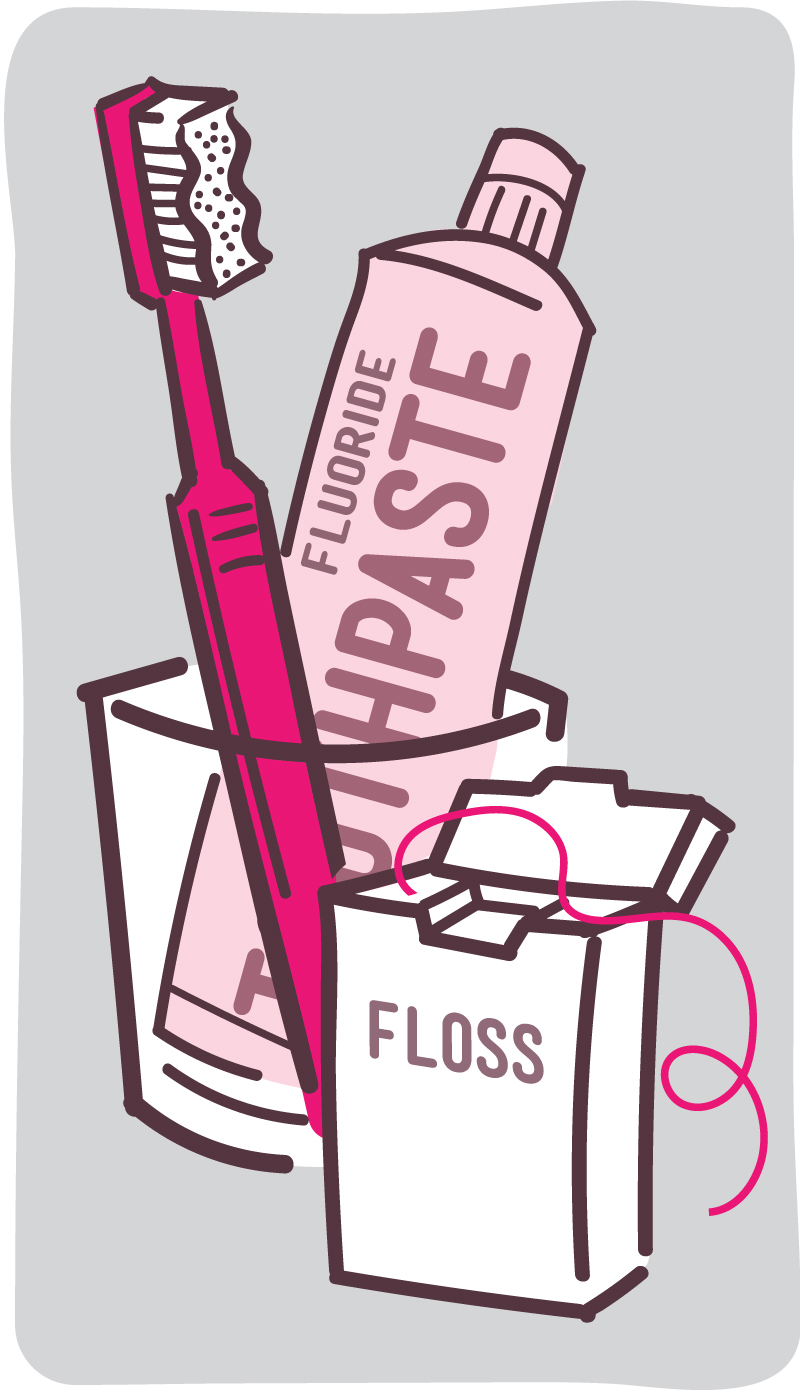Keep Your Mouth Healthy
Oral Care for Older Adults

Oral health is important for people of all ages. But the simple routine you learned as a kid—brush your teeth twice a day and floss regularly—can become more of a challenge as you get older. Among adults ages 75 and up, about 1 in 4 has lost all natural teeth, largely because of gum disease and tooth decay.
You can take steps to keep your mouth healthy throughout your lifetime. And if you’re a caregiver for an older adult, you can help ensure that he or she gets proper oral care. Tooth decay and gum disease don’t have to be a part of getting older.
“We have to worry about the same conditions throughout life, although some conditions are more prevalent at certain ages,” says Dr. Dena Fischer, a dental health expert at NIH. The 2 most common oral health problems are tooth decay (Small holes in teeth caused by decay. cavities) and gum disease. “Gum disease is more common when you’re older,” Fischer explains. “But cavities can happen at any age, as long as you have natural teeth.” Both are largely preventable with proper care.
Cavities develop as Sticky, colorless film that can lead to tooth decay and gum disease. plaque builds up on your teeth and under chipped fillings, producing acids that can eventually eat away at the tooth’s hard outer surface.
Gum disease is an infection of the gums and surrounding tissues that hold your teeth in place. Gum problems arise as plaque builds up along and under your gum line. In severe cases, the bone and tissue that hold teeth in place can break down, and teeth may eventually become loose and have to be removed.
Reduce your risk of developing tooth decay and gum disease by brushing daily with fluoride toothpaste and flossing. Also visit the dentist regularly for a cleaning and checkup.
Another common problem for older adults is dry mouth. Dry mouth occurs when you don’t have enough saliva, or spit, to keep your mouth wet. “Saliva is very important,” Fischer says. “The protective factors in saliva prevent cavities, gum disease, and fungal infections.”
Dry mouth can be caused by medications; alcohol or tobacco; or medical conditions, such as poorly controlled diabetes. Dry mouth is usually treatable, so talk with your doctor or dentist if you’re having problems.
Older adults are also at increased risk for oral cancer. Symptoms include a sore, irritation, or lump in the mouth or throat that lasts more than two weeks; it may be painful or may cause numbness. It’s important to catch oral cancer early, because treatment works best before the disease has spread. Be on the lookout for any changes in your mouth, especially if you smoke or drink.
If you serve as a caregiver to an older adult, you can help that person overcome oral health challenges. Encourage him or her to use an electric or large-handled toothbrush, so it’s easier to grip. You might place your hand over his/hers to help guide the toothbrush. Dentures should soak in water overnight and once a week with a denture cleaner. Dentures should also be rinsed after each meal and brushed daily.
A healthy mouth can help you eat well, avoid pain, and feel good about yourself. Take steps to keep your mouth healthy, whatever your age.
NIH Office of Communications and Public Liaison
Health and Science Publications Branch
Building 31, Room 5B52
Bethesda, MD 20892-2094
Contact Us:
nihnewsinhealth@od.nih.gov
Phone: 301-451-8224
Share Our Materials: Reprint our articles and illustrations in your own publication. Our material is not copyrighted. Please acknowledge NIH News in Health as the source and send us a copy.
For more consumer health news and information, visit health.nih.gov.
For wellness toolkits, visit www.nih.gov/wellnesstoolkits.




